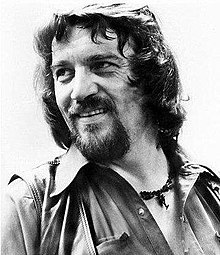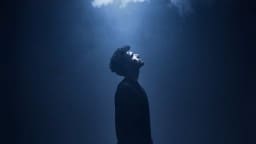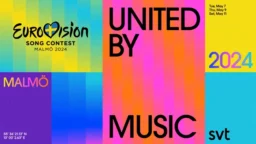It was a national final, and yet it wasn’t. In a sweeping five-day run on daily primetime tv-show De wereld draait door Waylon introduced the Dutch viewers to the songs he would have liked to bring to Lisbon. In the meantime, he had already opted for the most radical song of them all: the smoking, raw Outlaw in ‘em.
Hunted loners
After the American Civil War at the end of the eighteenth century a man could be declared an official outlaw, something which mainly happened to criminals. They were put outside of the law, meaning that anyone could arrest them. Which is exactly what happened, as there was good money to be made from it. These outlawed, hunted loners were never the friendliest types, of course. Waylon describes them as people with scarred knuckles and bloodstains on their boots. Or, as the most striking imagery of the song puts it: ‘diamondback rattle with a quick strike venom’.
Romantic Rebel
In the song, written by Waylon, Ilya Toshinsky and Jim Beavers, Waylon argues that we all have an outlaw inside of us, one that needs to get out every now and then: ‘that rebel fights inside of you, he’s been there all along.’ The word ‘rebel’, however, suggests a far more romantic view on the scumbag we thought he was talking about. This comes closer to the iconic status that cattle thief Billy the Kid had, for instance, or train robber Jesse James, both of whom were also credited with fighting for freedom. The inner outlaw Waylon wants us to acknowledge seems therefore to reside between two near-opposites: the bad-ass and the hero.
Convictions
Musically speaking, Outlaw in ‘em is strong and straight-forward; a powerful, rocking country song, accompanied by wailing guitars. Waylon speaks of ‘a little frontman swagger’, which he amply provides. Within an hour of first having heard Waylon’s song, one Dutch newspaper reported with an air of certainty that this ‘raw tribute to lawlessness, performed on a Eurovision stage, would amount to suicide’. But in Waylon’s own words: ‘During the Song Contest you have to have the courage of your convictions – and this is who I am.’
Outside of the mainstream
Waylon has previously shown to have a good eye for the contest’s musical developments, and he isn’t wrong this time either. It pays to be different. The genres outside of the mainstream are those that attract voters. ‘It’s easy to choose the safe road,’ he said, ‘and I wanted to do the opposite.’ In addition, he knows better than anyone else how Calm After the Storm, the song he performed as part of The Common Linnets – also for the first time during a showcase on the same tv-programme – amassed disapproval before almost winning the Eurovision Song Contest in 2014. And so Waylon sits back and enjoys the hodge-podge of opinions and suggestions, while carefully following his chosen path. He is the brat prince in the Song Contest lodge, and with his strongest song and strongest lyrics Waylon will be the rebel on stage, the outlaw in the greenroom, the loner who will have no trouble rocking his way into the finale. Because that’s how he goes.
Waylon Jennings
It seems like a budding tradition: the past few even years The Netherlands have been send ing artists to Eurovision who have their musical roots firmly planted in country music soil. In 2014: The Common Linnets, in 2016: Douwe Bob and for 2018 it’s Waylon. His real name is Willem Bijkerk, but out of admiration for and a sense of kinship with country legend Waylon Jennings, he chose to adopt his first name as his stage name. Jennings (1937-2002) was one of the singers who, in the 1970s, wanted to liberate himself from the record companies’ strict demands and rules. Their country music moved into rock music territory and the ‘nice’ image was thrown overboard. Along came the long hair, a wilder style of clothing, drug use and sexual lyrics. Figureheads of this movement were Willie Nelson, Kris Kristofferson and Waylon Jennings. Their style was named ‘outlaw country’. And that made them… outlaws.
ing artists to Eurovision who have their musical roots firmly planted in country music soil. In 2014: The Common Linnets, in 2016: Douwe Bob and for 2018 it’s Waylon. His real name is Willem Bijkerk, but out of admiration for and a sense of kinship with country legend Waylon Jennings, he chose to adopt his first name as his stage name. Jennings (1937-2002) was one of the singers who, in the 1970s, wanted to liberate himself from the record companies’ strict demands and rules. Their country music moved into rock music territory and the ‘nice’ image was thrown overboard. Along came the long hair, a wilder style of clothing, drug use and sexual lyrics. Figureheads of this movement were Willie Nelson, Kris Kristofferson and Waylon Jennings. Their style was named ‘outlaw country’. And that made them… outlaws.
This article was translated by Sandra Hessels.





